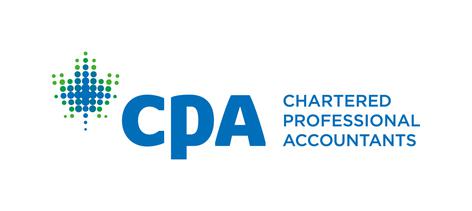The Certified Public Accountant (CPA) designation is a prestigious certification for individuals looking to pursue a career in accounting and finance. Whether you’re a recent graduate or a seasoned professional, obtaining a CPA license can significantly enhance your career prospects. However, before embarking on this journey, it’s crucial to understand the eligibility requirements for the CPA course. In this article, we will delve into the details of CPA course eligibility, providing you with a comprehensive guide to kickstart your CPA aspirations.
What is a CPA Course?
Before diving into the eligibility requirements, it is important to have a clear understanding of what the CPA course entails. The CPA course is a professional accounting program designed to equip candidates with the necessary skills and knowledge to excel in the field of accounting and finance. A wide range of topics are covered in the curriculum, including corporate law, ethics, financial accounting, taxation, and auditing. Successful completion of the CPA course prepares candidates to sit for the CPA examination, which is a crucial step towards obtaining the CPA license.
Basic Eligibility Requirements for CPA Course:
Candidates must fulfill specific eligibility requirements in order to join in a CPA course. Although these criteria may vary slightly from one jurisdiction to another, there are some common prerequisites that aspiring CPA candidates should be aware of. Let’s explore the basic eligibility requirements:
- Educational Qualification: Most jurisdictions require candidates to have a bachelor’s degree or its equivalent from an accredited institution. The degree should be in accounting or a related field, such as finance or business administration. In some cases, candidates with a non-accounting degree may be eligible if they have completed specific accounting coursework as determined by the jurisdiction.
- Coursework Requirements: Apart from the educational qualification, CPA candidates must fulfill specific coursework requirements. These requirements vary by jurisdiction but generally include a certain number of credit hours in accounting and business-related subjects. For instance, a jurisdiction might mandate a minimum of 24 credit hours in accounting and 24 credit hours in business-related subjects.
Additional Eligibility Factors:
While educational qualifications and coursework requirements form the foundation of CPA course eligibility, there are other factors to consider. These factors may vary depending on the jurisdiction. Let’s delve into some of the additional eligibility considerations:
- Professional Experience: Some jurisdictions require candidates to have relevant professional experience in the field of accounting. This normally entails spending a set amount of time working under the guidance of a certified public accountant. The experience requirement aims to ensure that candidates have gained practical exposure to accounting principles and practices.
- Residency or Citizenship: Certain jurisdictions have residency or citizenship requirements that candidates must meet to be eligible for the CPA course. It is important to verify the specific requirements of the jurisdiction in which you intend to pursue the CPA course.
- Age Requirement: A few jurisdictions may have an age requirement for CPA course eligibility. Candidates must meet the minimum age limit specified by the respective licensing body.
Applying for the CPA Course:
Once you have determined that you meet the eligibility criteria for the CPA course, the next step is to apply for enrollment. The application process may vary depending on the jurisdiction and the institution offering the CPA course. Generally, you will be required to submit the following documents:
- Transcripts: Official transcripts from all educational institutions you attended must be submitted. These transcripts should reflect the completion of the required educational qualifications and coursework.
- Application Form: Complete the application form provided by the licensing authority or educational institution offering the CPA course. The form will require personal information, educational background, and any additional details as per the jurisdiction’s requirements.
- Application Fee: Most jurisdictions require candidates to pay an application fee along with the submission of the application form. The fee may vary, so it’s important to check the specific requirements of the jurisdiction.
Conclusion:
The CPA course is a rigorous program that prepares candidates for a successful career in accounting and finance. Understanding the eligibility requirements is essential before embarking on this professional journey. Educational qualifications, coursework requirements, professional experience, residency or citizenship, and age requirements are some of the key factors to consider. By meeting these eligibility criteria and successfully completing the CPA course, candidates can gain the knowledge, skills, and credibility needed to excel in the accounting profession.
In summary, the CPA course details discussed in this article provide a comprehensive understanding of the eligibility requirements for aspiring candidates. Whether you are a recent graduate or a working professional, meeting these requirements will set you on the path to earning a CPA licence, which opens you a world of career prospects in accounting and finance.

